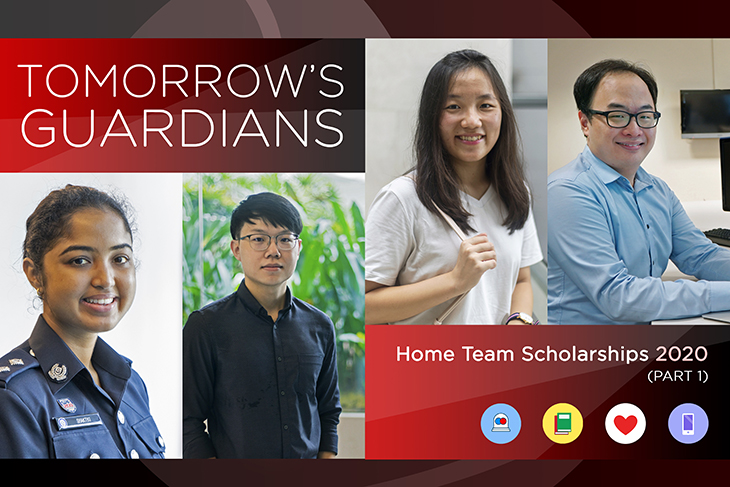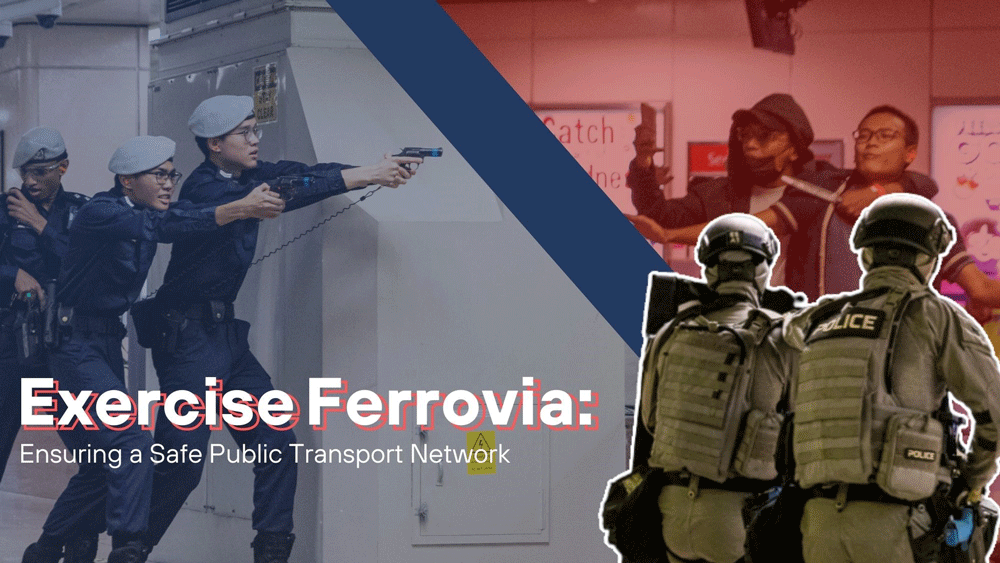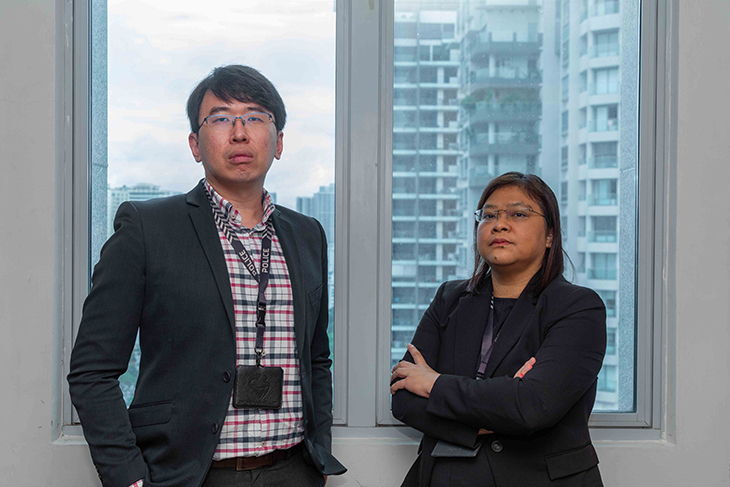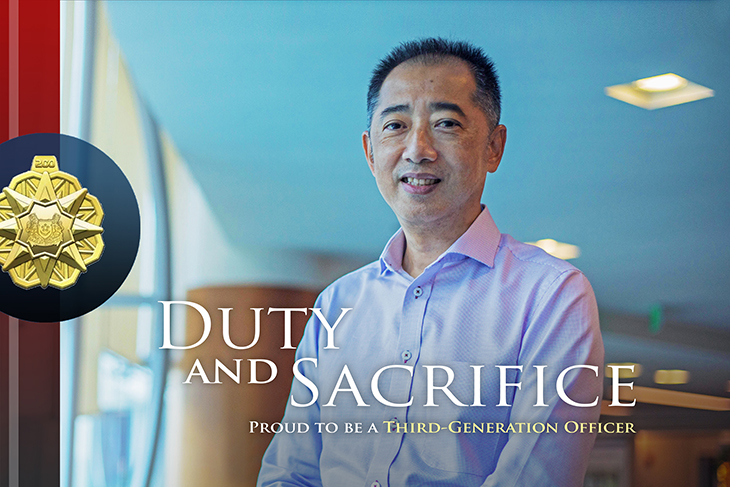
Dr Majeed speaking at the 2021 Public Sector Transformation Convention about the importance of enhancing our psychological resilience. PHOTO: Joash Tan
A practising Psychologist with the Home Team for 30 years, Dr Majeed Khader has seen the best that the human spirit has to offer, and the cost of criminal behaviour.
His best experiences include seeing Home Team officers serving with selflessness and conviction, while his most challenging encounters have been with offenders who committed violence against the vulnerable.
One particular incident from his days as a Police Psychologist continues to play in his mind as a reminder of why he serves. Having arrived at a scene of a suicide, he heard the victim’s mobile phone ringing over and over again, with no one to answer it: “I still remember that when I went home that day, I was in a daze, it was hard to eat or get any rest; I was just shaken up.”
But what got Dr Majeed through such challenges are the colleagues he has had throughout his career. “They’ve always lent a listening ear and helped me to make sense of what’s going on,” he explained.
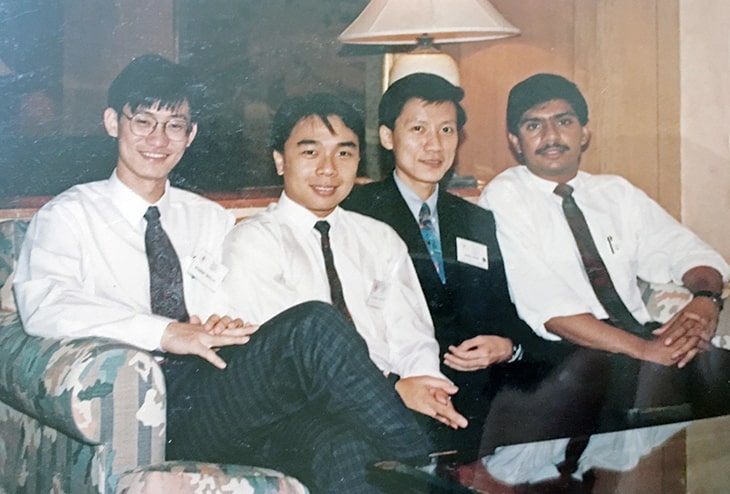
Beginnings: Dr Majeed during his days as a Psychology major at university. PHOTO: Dr Majeed Khader
A Search for AnswersDr Majeed’s decision to pursue Psychology at the National University of Singapore didn’t come about by chance. Explaining that he grew up under challenging childhood circumstances, he said, “I wanted to search for answers, and I felt that studying Psychology would lead me to them. My mother was also a huge fan of the subject; she introduced me to Psychology and cultivated my interest in it.”
After graduating, Dr Majeed joined the Singapore Police Force in 1993. As a member of the pioneering team of Police Psychologists, he worked to apply psychological insights and research to help Police officers improve their resilience.
Building Rapport is Key
During his early days at the Police Academy, Dr Majeed had to bring his “big and bulky” personal computer and printer to work, and did his best to demonstrate how Psychology could help officers in their work.
“Initially, I faced some scepticism from them,” he recalled. “But I quickly learnt to adapt and realised the importance of building rapport with the officers. Doing so allowed me to gain a deeper understanding of their work, and this helped me to develop a psychological resilience framework tailored for them.”

Pioneers: Dr Majeed with colleagues at the Police Psychological Unit (photo on the left), and with uniformed officers. PHOTOS: PPSD Photo Archive
Dr Majeed recalls those early days at the Police Academy as one of the best things that happened in his career. “It helped shape my character and allowed me to forge closer bonds with many officers whom I still call friends,” he shared. “I wouldn’t trade those precious years for anything.”
When Duty CallsIn 1996, the Police Psychological Unit was formed to provide counselling and specialised assessment services for officers. As part of his duties, Dr Majeed also provided psychological support to those in need during crises such as the SQ006 plane crash of 2000 and the 2004 Asian Tsunami. But the most memorable of these assignments was his encounter with members of Singapore’s Jemaah Islamiyah group in 2001.

One Home Team: Dr Majeed (second from right) with colleagues from the Police Psychological Unit in 1997. They continue to serve as Home Team officers and remain close to Dr Majeed. PHOTO: Dr Majeed Khader
“When I knew I had to interview those who’d intended to commit acts of terrorism in Singapore, I was a little concerned,” he said. “But I knew it was my duty, and it gave me a newfound respect for fellow Home Team officers who put their lives on the line to combat extremism."
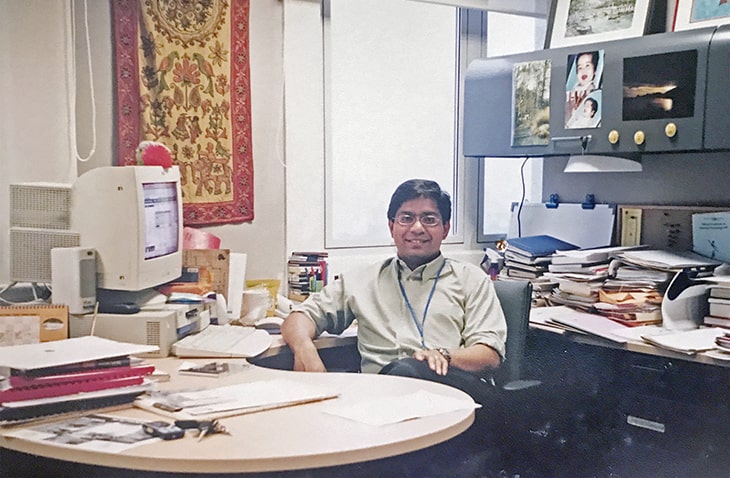
The doctor is in: Dr Majeed at Police Headquarters in 2002. PHOTO: Dr Majeed Khader
The experience also opened up new areas of research in terms of how Dr Majeed and his team could better address the psychology of extremism. In 2004, the Police Psychological Unit was reorganised into the Police Psychological Services Division (now known as the Police Psychological Services Department), with Dr Majeed as its Head. He later served concurrently as the Deputy Director of the Home Team Behavioural Sciences Centre (HTBSC).
Providing a LifelineIn 2017, Dr Majeed was appointed Chief Psychologist for the Ministry of Home Affairs, with a focus on applying psychological insights to enhance the Home Team’s operations. He remains a committed advocate for mental health and wellness.
“It’s okay to not feel okay,” he explained. “Being healthy isn’t merely about the absence of physical illness. It’s also about having a positive sense of well-being and an element of joy in our hearts. We should ask for help if we’re not feeling all right.”
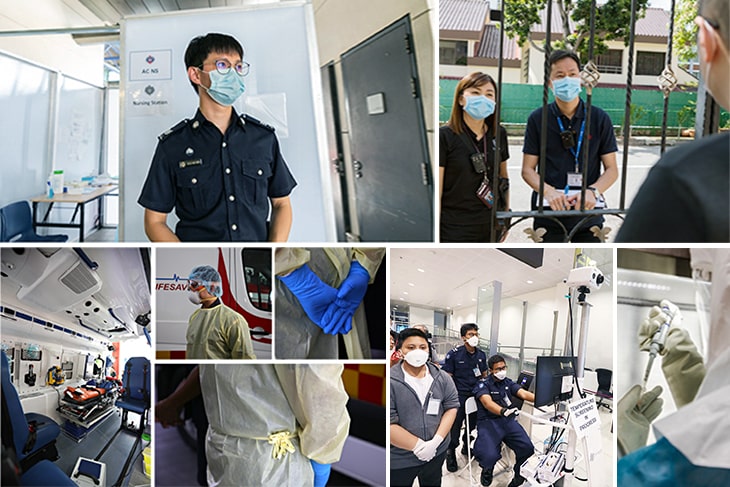
On the frontlines: Officers from the Home Team have stepped forward to support COVID-19 operations. PHOTOS: Home Team News
To better support Home Team officers during COVID-19, HTBSC and the psychological units within the Home Team worked to bolster stress management and resilience among officers. “This helps them to work more effectively,” he explained.
According to Dr Majeed, adaptability is another key attribute that’s needed in these times. “The challenges we face are quite dynamic and what worked for us before may not work now,” he said. “Hence, we have to constantly adjust how we do things.”
Riding the WavesDr Majeed’s philosophy of “riding the waves instead of getting pulled under by them” applies to his personal life as well. The father of two revealed that his son Raouf was diagnosed with autism when he was two years old.
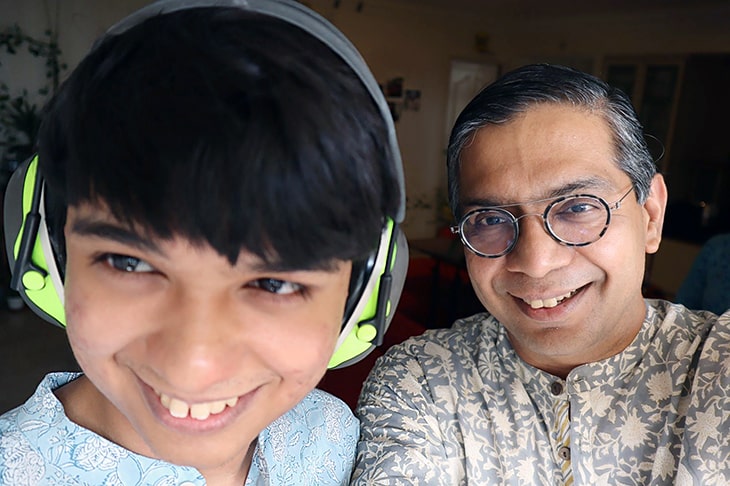
Homefront: Dr Majeed with his 17-year-old son, Raouf. PHOTO: Dr Majeed Khader
“At first, my wife and I didn’t know who to talk to, or what tests to go for,” he shared. “But as we figured it out, we learnt to take things in our stride.”
Dr Majeed also became an active volunteer in the autism community, and he’s glad to share his experiences with other families in need. “In turn, we also learnt to draw support from those who are in a similar situation,” he said. “It’s still difficult, but it gets better each day.”

From strength to strength: Dr Majeed at the Police Psychological Services Division’s 25th anniversary celebration in 2018. PHOTO: PPSD Photo Archive
Looking back over his 30 years as an officer, Dr Majeed noted that Psychology now plays a vital role in a range of Home Team operations, with Behavioural Sciences serving as an important operational multiplier.
“It’s been a great experience, and I’m grateful to my colleagues and bosses,” he said. “One reason why I’ve been able to cope with challenges at work and contribute as an officer is because they trusted me, and gave me the support I needed.”
Dr Majeed Khader is Chief Psychologist at the Ministry of Home Affairs and Director of the Home Team Behavioural Sciences Centre. Over the course of his career, Dr Majeed has overseen the development of psychological services for the Home Team, building up our capabilities in leadership, resilience, profiling, counselling, crisis negotiations, crisis psychology, stress management and personnel selection. In 2014 and 2022, Dr Majeed received the Public Administration Medal (Silver) and the Long Service Award (30 Years) respectively for his contributions to the Home Team.










